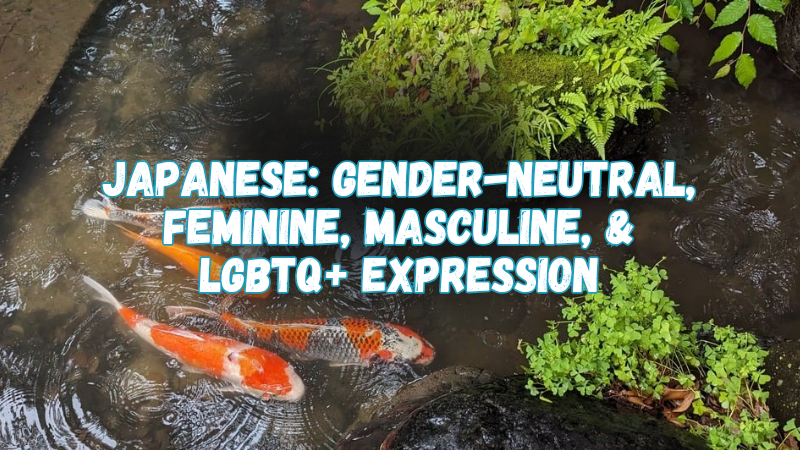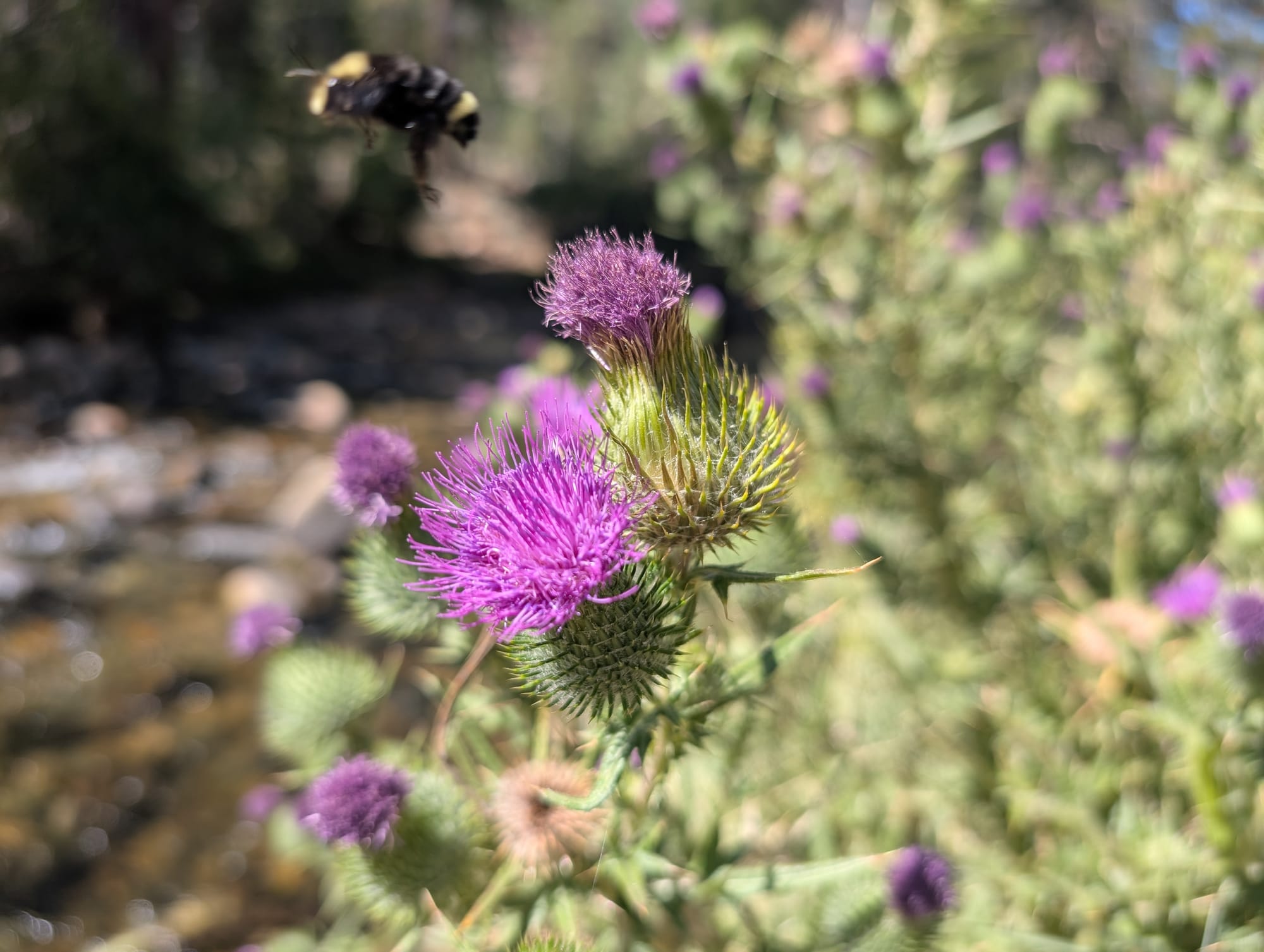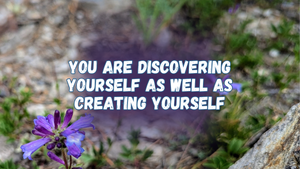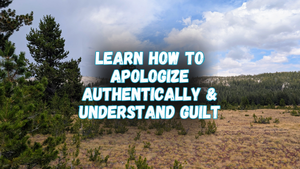You're a writer, right? You should be able to communicate with me too.
Just because I am (or you are) a writer, or communicate as part of our job and life, doesn't mean our ability to communicate is somehow infinite.
I spent a month in Japan earlier this year. When I was wandering around the city, I couldn't understand most conversations I overheard, and I couldn't read the street signs, the posters, the advertisements. I had my data plan on my phone turned off most of the time.

My mind was quiet. I felt peaceful.
I wasn't constantly reading words, even in the city.
The Sierra Nevada mountains in California is another place my mind is quiet. No cell coverage, or my phone is on airplane mode to save battery. Sage brush and ravens are fascinating to watch, but have no words.

And here I am in the library, today. Glancing around, I cannot help reading the text on everything within range. Vogue. Scientific American. How Horses Made the... Immunization Clinic. Upcoming Social Services Programs. Blu-rays & Non-feature DVDs. The litany never stops.
Or I'm looking at my computer screen, not the posters on the wall. More words. Messages from friends. Messages I should have responded to two months ago.
Almost every message I've received for the last few days has started with, Sorry for my slow reply.
And I reply, now it is my turn to apologize for my slow reply.
I don't think anyone is actually sorry for our slow replies. Perhaps we feel guilty, or shamed, or inadequate, but we cannot actually reply any faster without destroying some piece of our soul.

Amplify Respect is "Radiolab for trans people"—relatable LGBTQ+ stories to build empathy and understanding, rooted in respect for people, culture, and ecosystems.
If you find it helpful to learn how to talk about a trans family member, how to promote your work as an LGBTQ+ creator, or how to write about trans people respectfully, you should subscribe.
Writing is hard. Communication is hard. Let's not pretend that it's easy or expected, especially this online communication that is a huge challenge our brains are not necessarily adapted to.
When we consider someone good at communication, I think there's two different sides to that.
One side is regarding the quality of their communication. Are they easy to understand? Are they good at putting words together to accomplish a goal or create art?
The other side, rarely considered, is regarding the volume and frequency of their communication. Are they able to keep up with replies to messages consistently? Are they able to chat at all hours of the day? How many minutes or hours can they spend on communication in a day before they crash? How long does it take them to recover and be able to communicate again?
And yes, I use "able" intentionally here. Communication is an ability that takes energy, focus, and executive function - things that people have in limited quantities, and disabled people tend to understand having to pace themselves.
When I push my limits with what's way too much communication for me, my brain springs back in the other direction eventually. No talking. No writing. No client work. No LinkedIn messages. No phone calls. No.
How long does that take to snap out of? A day? A couple days? Who the heck knows?
That's what burnout looks like for me. Communication makes me upset or feels highly painful to impossible.
While occasional clients, friends, relationships, or colleagues probably won't notice a few days gap in communication, my romantic and full-time road trip partner sure does. As would my colleagues and boss at a full-time job.
So I feel like a failure.
But if I'm failing at the same exact thing most people around me are failing at (responding to emails and texts within like, 2 days? etc), it's time to rewrite the rules.
It's okay to prioritize people who are there with you in real life. Maybe that's your family or partner, or your neighbor who you chat with for 30 seconds, or the person camped next to you who you'll never see again.
It's okay that some messages you respond to promptly and some you let simmer for a month. Your brain and body are giving you a gut feeling and wisdom about how you can best communicate and how much is too much. It's okay to listen and to do less.
It's okay to communicate less.
It's okay to go outside or rest inside or whatever you need to do so that at some point you can reach out to people again.
I think we are mostly doing the best we can in a highly unnatural environment with intense expectations surrounding communication, especially for work.
I really appreciate people who set reasonable expectations for replying and let me know it's okay to take the time I need.
We have these immensely powerful tools: phone, email, AI, computers, software - but at least for me, these need to be balanced with quiet time.
Just like you can pace yourself in terms of physical activity to let yourself recover, you can pace yourself in mental and emotional activity as well.
And you can come back revitalized.


Back Indie Media Drive from Project C - find your new favorite read, watch or listen and become a backer.
Why?
- It’s HARD being an independent publisher in 2025. Media is shrinking. Journalists are leaving the field. Billionaires are blocking stories. The only funding we can rely is on what readers like you contribute. That’s what keeps us editorially independent AND financially independent. And that’s important in a world where MOST messages we’re getting online are coming from corporate interests or powerful political forces.
- All of this led us to team up with our fellow indie publishers for the Back Indie Media Drive, running all through September. We know you’re an indie media supporter because you’re here. Now, we’re asking you to take a step that helps ensure Amplify Respect can keep telling it like it is. Become a backer of our work for $50/year.
- Want to go even further? Skim through all of the publishers in the Indie Media Drive and choose ONE other to become a paid supporter of too. It’s (hopefully) a small impact on your wallet and it’s a MASSIVE help towards keeping actually independent media alive.

Looking for a journalism class?

I highly recommend Write Like a Honey Badger, and especially Amanda Castleman's teaching. Amanda has given me excellent feedback on my pitches - she helped me get my work about writing about trans people with respect published for the first time!
I'm signed up for the upcoming Travel Writing Master Class (updated start date, Sept 23rd) and I'm so excited and grateful for the opportunity. Want to take the class with me?
https://www.writelikeahoneybadger.com/classes/travel-writing-master-class/







